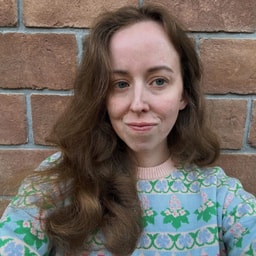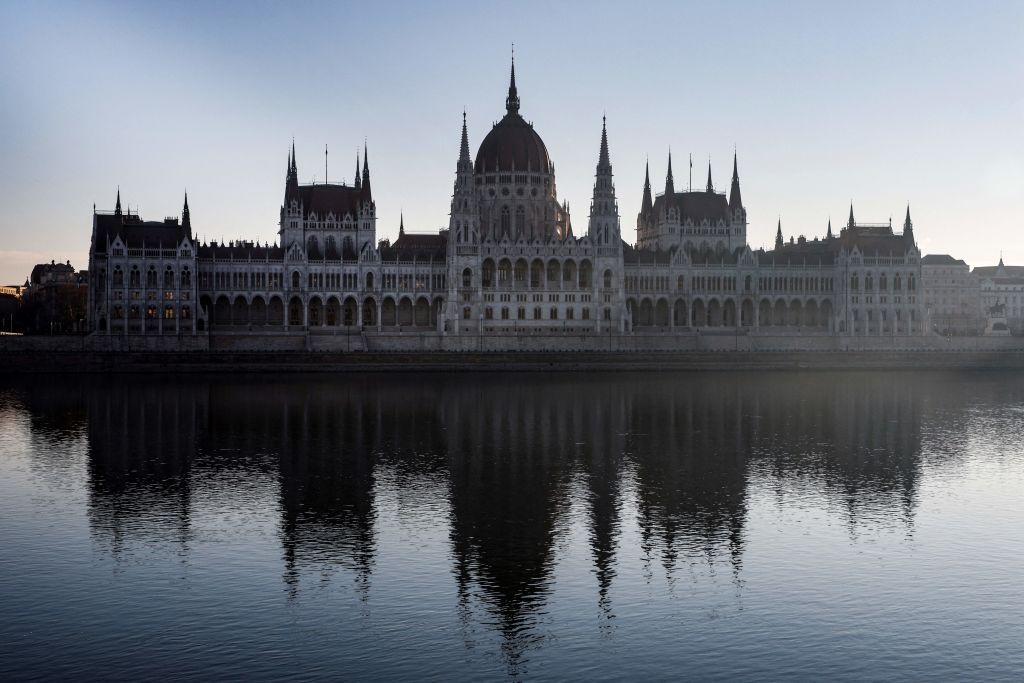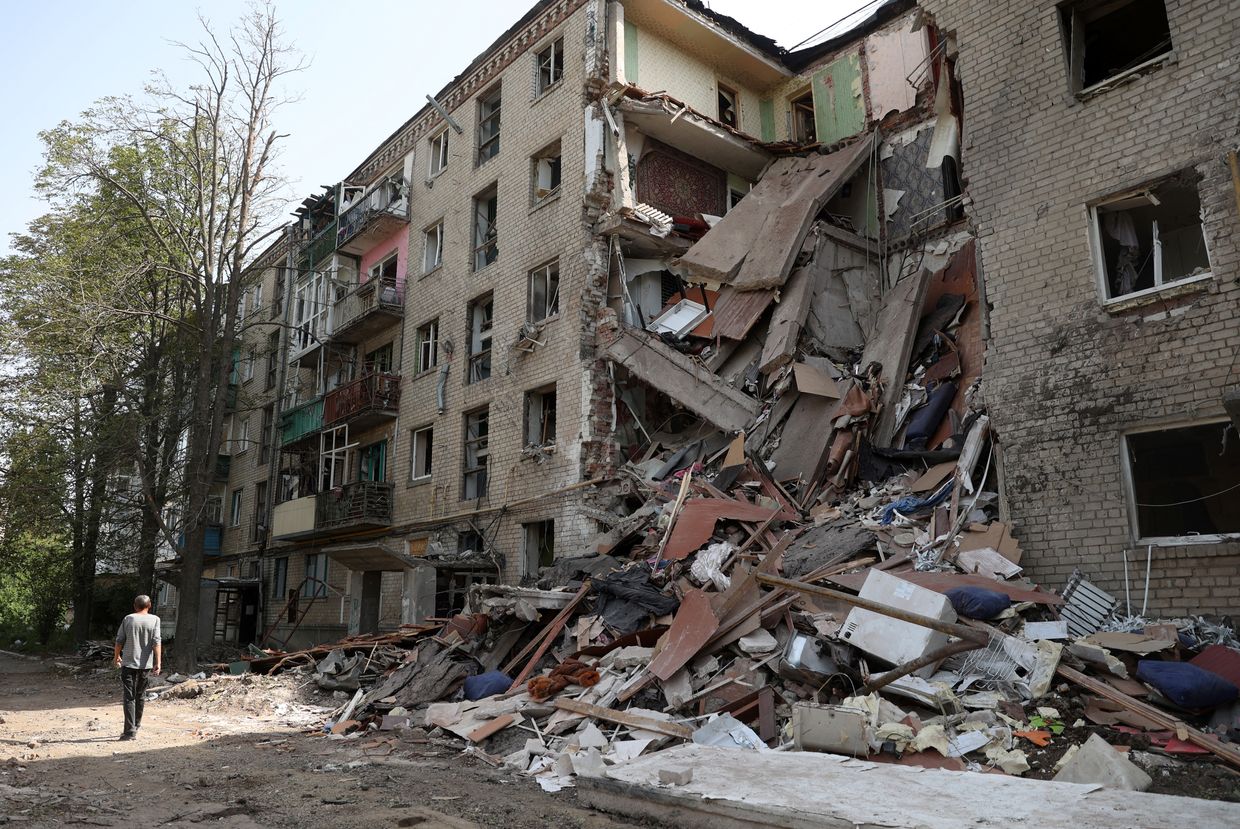Who was Iryna Farion, the nationalist professor-politician assassinated in Lviv?

Despite the contrasting opinions surrounding her life’s work and sometimes contentious public statements, the assassination of linguist and former right-wing lawmaker Iryna Farion on July 19 came as a shock to Ukrainians.
Sixty-year-old Farion was shot in the head by an unknown assailant outside of her home in the western city of Lviv in what many now believe to be a politically-motivated killing.
While commenting on the incident President Volodymyr Zelensky said on July 20 that all potential motivations behind the murder are currently being investigated and that includes “the one leading to Russia.”
Farion’s “public and political activities” are believed to have been a driving force behind the assassination, Interior Minister Ihor Klimenko added.
Farion strongly advocated for the use of the Ukrainian language in Ukraine during her lifetime. Many Ukrainians praised her for encouraging Ukrainian society to sever all ties to the Russian language to counter Russian influence, while others viewed her methods as polarizing. Her comments late last year that Russian-speaking Ukrainian soldiers were not “real Ukrainians” caused a huge uproar in Ukraine.
“Ultimately, history will put everything in its place. And Iryna Farion has already taken her place in modern Ukrainian history. Historians will evaluate what that place is,” lawmaker Yaroslav Yurchyshyn wrote in a post on social media.
Farion held university degrees in philology from the Ivan Franko National University of Lviv. She authored over 200 articles throughout her academic career and was involved in numerous educational projects to promote the Ukrainian language and culture.
In the late 80s, she was an official member of Ukraine’s Communist Party. This was during the end years of the Soviet Union when the policies of glasnost and perestroika aimed at prompting social change through less censorship and more freedom of expression.
Farion initially denied that she had been a member of the Communist Party and even claimed that it was a move to destroy her reputation. She later acknowledged she had been a member but only for one year, also claiming she was among those who wanted to “dismantle the Communist Party from within."
The Ukrainian language has become more widespread since the Euromaidan Revolution of 2014, thanks in part to language laws that were later implemented to promote its use in the public sphere. Prior to that, the use of the Russian language and the influence of Russian culture was more widespread in Ukraine.
In 2010, Farion was criticized by pro-Russian politicians for speaking to a group of kindergarten students and telling them it was wrong to use the Russian diminutive form of Slavic names.
“If she’s Masha (and not Marichka), then it’s not our way of saying her name,” Farion said in a video that became legendary on Ukrainian social media. “Let her go there (to Russia) where all the Masha’s live.”
Maria is a popular name in Ukraine and many Ukrainian women go by the diminutive Masha.
After the video surfaced online, Vadim Kolesnychenko, a lawmaker with the now defunct Party of Regions who later became a collaborator with the Russian occupation authorities in Crimea, tried to lobby Ukraine’s Prosecutor General to prosecute Farion on the grounds of promoting linguistic “discrimination” among children.
Farion herself was involved in politics from 2012 to 2014 when she was elected as a member of the Verkhovna Rada, Ukraine’s parliament. She was a member of the nationalist Svoboda party.
During her time in the parliament, she famously mocked Prime Minister Mykola Azarov, who served under pro-Russian President Viktor Yanukovych, for his poor use of the Ukrainian language. She asked Azarov whether his inability to speak Ukrainian well was the result of an intellectual impairment.
She also fiercely criticized fellow lawmakers who refused to speak the Ukrainian language despite it being the official working language of the Ukrainian government.
Farion remained a well-known public figure after her stint in politics but became an even more divisive figure during the later years of her life. In 2018, during a public forum on the Ukrainian language, Farion called the ethnic Hungarians of the Zakarpattia region who didn't speak proper Ukrainian "idiots" and suggested they "go back to Hungary.”
Her biggest scandal came following comments she made about Russian-speaking soldiers in the Ukrainian military. Although there are changes in linguistic dynamics prompted by the ongoing war, many Ukrainians, especially those from the eastern part of the country, still speak Russian.
During an interview with Ukrainian journalist Yanina Sokolova in November 2023, Farion said that she “categorically rejected” the fact that some of the Azov regiment’s soldiers spoke Russian.
“I have a question for them: What is stopping you guys from doing this if you are so strong? And you are very smart. What prevents you from fulfilling Article 29 of the law on the Armed Forces of Ukraine? Do you guys know what discipline is in the army?” Farion said.
"I cannot call them Ukrainians. If they do not speak Ukrainian, then let them call themselves 'Russians,’ If they are such great patriots, then show your patriotism. Study the language of (19th century national poet) Taras Hryhorovych Shevchenko.”
News also surfaced shortly after of a pro-Ukrainian student in Crimea who was interrogated by occupation authorities after Farion published an email she’d received from him. She’d failed to conceal his full name and other identifying information.
Farion was dismissed from her position as a Ukrainian language professor at Lviv Polytechnic University once students at the university and others organized protests demanding so. Ukraine's Security Service (SBU) launched an investigation after both incidents.
She was reinstated as a professor at Lviv Polytechnic University in June 2023.
Following the news of her murder, the Svoboda political party which Farion was a member of issued a public statement in which they declared that it “was carried out on Moscow's orders, regardless of which scoundrel directly executed it.”
Advancing the idea that the murder was politically motivated, Svoboda’s statement goes on to read that “there has been no fundamental cleansing of power (since the start of Russia’s full-scale war. On the contrary, enemy agents and their accomplices still feel free in Ukraine.”
The Svoboda party also called for the “full neutralization” of “Moscow’s agents, no matter what guise they assume, ban their organizational structures, and destroy their financial and material capabilities.”
Similarly, Yurchyshyn in his post called on the Verkhovna Rada to “urgently” pass a law banning the activities of Russian-affiliated religious organizations in Ukraine, adding that it would be “the best immediate tribute to Iryna Farion's memory.”
“The decolonization of the linguistic space must continue,” Yurchyshyn added, urging people to continue Farion’s work.
Regardless of their personal opinions about Farion, Ukrainians across social media overwhelmingly expressed their horror at her murder.
“It doesn't matter how you feel about Farion,” video blogger and volunteer Serhiy Sternenko, who has survived attempts on his own life, wrote.
“(Her murder) is a shameful act of terror that cannot be justified.”













